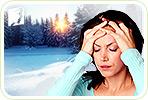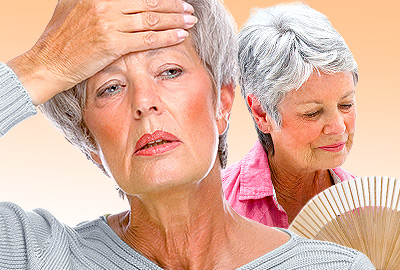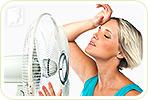Hot flashes are one of the most common symptoms of the menopause transition, affecting around three quarters of middle aged women. During menopause, levels of estrogen, progesterone and testosterone begin to decline, which can affect the brain. Lowered estrogen levels can cause the hypothalamus to mistakenly believe that you are cold and raises the body temperature accordingly. This is a hot flash, and it often occurs suddenly, and causes overheating, flushed hands and face, and sweating.
Stressful situations are one of the major triggers of hot flashes. While hot flashes may not be entirely preventable, there are some precautionary measures you can take to decrease the likelihood of them occurring, and cope with them when they do.
Below are several example situations which may trigger hot flashes, and ways to deal with them.
Running Late

While everyone tries to be on time, life sometimes interferes. When you're running late, stress levels rise, and the higher levels of stress hormones combined with the imbalance in estrogen can lead to a hot flash. In this situation, it's important to pause and take a deep breath. Panicking, or becoming flustered may actually make you later, since you're more likely to forget things. If you're meeting someone, call or text them to let them know you're running late.
Work

Since stress increases the risk of hot flashes, and work can be stressful, hot flashes are a common problem in a number of workplaces. There are a number of ways you can try to prevent them, such as carrying a bottle of water with you everywhere, as well as a small, handheld fan. Try to dress in layers so that you can peel them off quickly if you need to. If possible, arrive to meetings early to get the seat near the vent.
Family Situations

Family can be stressful. If you're in a family situation and feel stress levels rising or a hot flash approaching, excuse yourself to the washroom. Wash your face and the back of your neck in cool water, and then have a drink of cold water. Try to calm your breathing and take a few minutes for yourself, away from everyone else.
More Information
If you are concerned about you hot flashes, talk to your doctor. Click the following link to learn other effective treatments for hot flashes.
Sources
- Sikon, Andrea and Holly Thacker M.D. "Treatment for Menopausal Hot Flashes". Cleveland Clinic Journal of Medicine. July 2004: 71 (7).
- "Hot flashes ... in January". Canadian Medical Association Journal. 2004: 170 (1).
- Miller, Heather and Rose Maria Li, M.D. "Measuring Hot Flashes: Summary of a National Institutes of Health Workshop". Conference report. Mayo Clinic. June 2004: 79.



